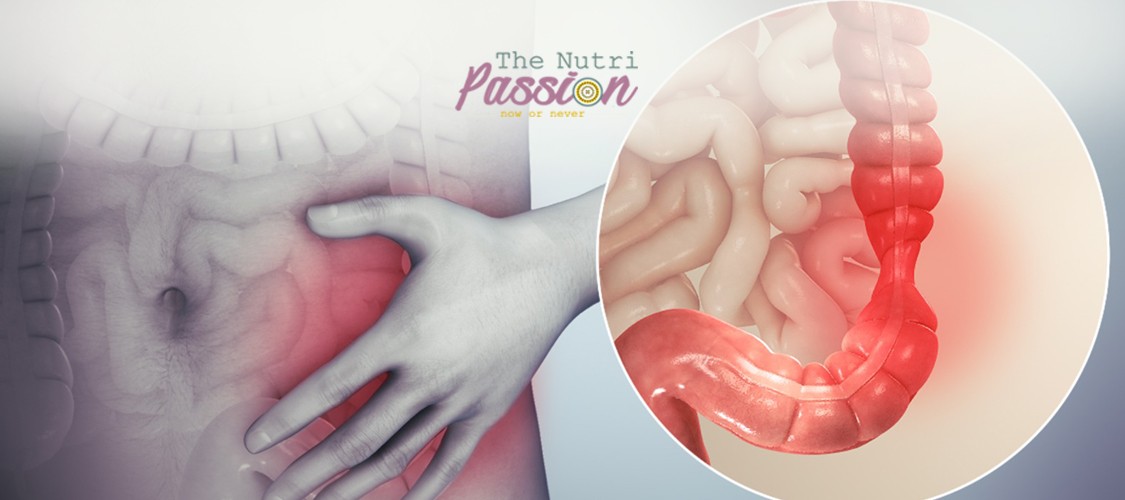
Irritable Bowel Syndrome
Irritable Bowel Syndrome: is a term that defines weakness in the movement of the intestines, and it has become relatively common among people in recent years.( Colon and spastic colon) are terms have been used in the past for this syndrome , but the term (irritable bowel disorder) is the one currently popular.
It is usually a lifelong problem.
Living with it can be frustrating, and it can have a huge impact on the practice of your daily life.
In this blog, we are going to discuss who can get Irritable Bowel Syndrome, symptoms, causes, and the nutrition therapy to alleviate the symptoms of this disorder:-
Who suffers from Irritable Bowel Syndrome?
- Gender: both men and women are vulnerable to this syndrome.
Some studies in the United States found that 80% of cases of IBS in American people were women. In contrast, a study in the continent of Asia found that the incidence of the syndrome among men is higher; therefore both sexes are vulnerable to the disorder
2-Age: It is possible to suffer from IBS at all ages, but most cases are between the ages of 20 to 30 years, and people over 50 years are considered less likely to be affected, if they are diagnosed with Irritable Bowel Syndrome, the condition is often temporary and could be reversable.
3-Family history: Who has an IBS patient in the family the risk to get IBS is higher. (genes)
Irritable Bowel Syndrome symptoms:
The severity of symptoms varies from person to person, and ranges from moderate to relatively severe. The most common symptoms are:
1- Abdominal pain and cramps
2- Constipation
3- Diarrhea
4- Intestinal bloating
There are other secondary symptoms which are:
1- feeling nauseous
2- Backache: the exact incidence is unknown
3-problems peeing, like needing to pee often, sudden urges to pee, and feeling like you cannot fully empty your bladder
4- Tiredness and lack of energy
Causes of Irritable Bowel Syndrome:
* At first let’s agree that the exact cause of Irritable Bowel Syndrome is not known yet...
But it has been linked to other things like:
1- Intestinal contractions: Either you are having rapid contractions, which result in the accumulation of gases, flatulence and diarrhea, or they are slow and result in a slow excretory process (constipation).
2- Defect in the nerves of the digestive system: it increases problems in intestinal contractions and has a significant impact on the severity of symptoms, especially if the person suffers from stress since childhood and has a family history of stress.
3- Food that triggers the symptoms of IBS such as:
* eating loads of fiber containing foods like (vegetables, legumes, fruits)
*Eating fast and spicy foods
* Legumes
*Milk and dairy products
* Soft drinks and caffeine
* Food that contains gluten such as: (whole wheat and barley products - sweets and all kinds of simple sugars)
4- Changes in gut microbes: such as (bacteria, virus and fungi)
Solutions to relieve symptoms of irritable bowel syndrome:
*There is no cure for this disorder, but changes in the diet, lifestyle habits and specific medications can often help control symptoms.
So there are 3 ways to relieve symptoms
1- NUTRITION: There is a special diet for Irritable Bowel Syndrome patients, which is the (FODMAP) diet:
it is an abbreviation for fermentable sugars that are poorly absorbed by the intestines, which leads to cramps and pain in the abdomen or digestive system in people with Irritable Bowel Disorder.
Nutrition related solutions are:
Do
• distribute the meals among the day in small quantities for each meal
• Use fresh ingredients for the food as much as possible
• write a note for any food that triggers your symptoms when eaten
• Try to avoid foods that trigger your irritable bowel syndrome (mentioned above)
• Drink a lot of water
• relax and stay away from stress
Don’t
• Don't cancel any meal
• Don't eat quickly
• Don't eat high fat, spicy and processed foods
• Don’t eat more than 3 servings of fresh fruit per day (serving is 80g)
• Don’t consume caffeinated drinks as much as possible
• Don't drink a lot of alcoholic drinks or soft drinks
2- Exercise: at least 4-5 days a week 30-60 minutes a day, and it is preferable to MIX the exercises between aerobic and resistance workouts
3 -medications: prescribed by A doctor for the critical cases that have IBS prescribed by their doctor.
At the end, this syndrome is a lifelong one it’s easier for you to deal with its symptoms, so following the tips that were mentioned above will help you maintain a healthy colon and a comfortable life.

Post Comment